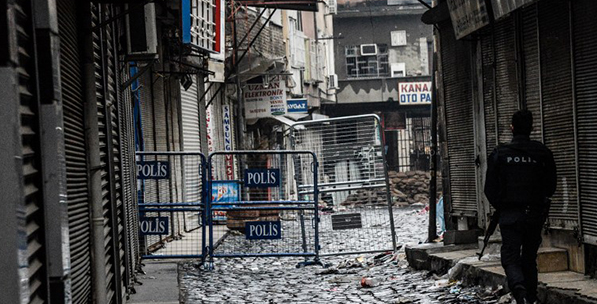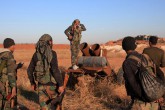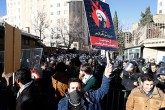Having left behind a year of transitions, Turkey is bracing for a year of important decisions. Over the coming months, the government will face many challenges related to constitutional reform, counterterrorism and the Syrian civil war. Today, let us focus on domestic politics.
In 2016, there will be the two priority items on Turkey’s political agenda of constitutional reform and counterterrorism.
It remains to be seen where the ongoing quest for a new constitution and the debate on a change to a presidential system will lead. Last week, media in Turkey reported that Prime Minister Ahmet Davutoğlu had a productive meeting with main opposition Republican people’s Party (CHP) Chairman Kemal Kılıçdaroğlu. At this time, the Turkish people expect their leaders, who agree on the need to replace the junta-sanctioned Constitution, to reach a consensus on the Republic’s new guiding principles.
Personally, I do not think that Turkey’s major political parties can move beyond limited cooperation. Considering that a parliamentary commission established in 2011 successfully drafted 60 articles before dissolving itself, there is a good chance that the four parties will agree on approximately 10 more articles – a modest agreement, one could argue. A heated public debate, however, awaits the country. This debate on a presidential system will quite probably continue until 2019.
With regard to counterterrorism, President Recep Tayyip Erdoğan pledged to continue the fight against the PKK in his New Year’s Eve address. His commitment to eliminate terrorist threats in the countryside and urban areas alike reflects the Turkish state’s mindset. The PKK and the Peoples’ Democratic Party (HDP), its political wing, in turn, might continue to engage security forces in residential areas across the southeast as part of their push for self-rule.
In recent months, Erdoğan and Davutoğlu have repeatedly said that the PKK fought a proxy war on behalf of foreign governments. Admittedly, such claims might not strike close observers as a new phenomenon. In the past, Turkish officials often made similar accusations. It is new, however, that they are actively reflecting on the reconciliation process.
With the PKK’s terrorist campaign raging on, the Turkish people and the Kurdish community keep asking the same question: “Why did the reconciliation process end? Why have we witnessed such destruction?” Kurdish nationalists would like them to believe that Erdoğan’s advocacy of a presidential system has caused the tragedy. Disappointed, the masses will not find the argument convincing.
Twice, in 2009 and again in 2013, the Turkish government launched disarmament talks with the PKK leadership – an initiative that the ordinary citizen appreciates. Even Erdoğan’s staunchest opponents admit that the Turkish people would not have rallied behind the reconciliation process without the blessing of a strong leader.
Currently, the PKK’s push for self-rule causes more harm than good for Kurdish nationalists. Turks and Kurds alike question why Kurdish nationalists cannot imagine a future with Turkey.
Being compelled to dialogue by violence alone cannot lead to meaningful progress. As such, the Turkish community and the PKK’s Kurdish rivals will be reluctant to support renewed talks.
2016 will be a crucial year for Kurdish nationalist politicians. They have no choice but to convince the people of Turkey that they have a national platform. To support their argument, they will need to develop a new language and novel policies. This time around, they must take the government’s criticism seriously.
2016 will be a year of important decisions, especially for Kurdish nationalists.
[Daily Sabah, January 4, 2015]
In this article
- Domestic Policy
- Opinion
- 2009
- 2011
- 2013
- 2015
- 2016
- 2019
- Civil War
- Counterterrorism
- Daily Sabah
- Kurdish Community
- Kurdish Nationalism
- Kurdistan Workers' Party Terrorist Organization (PKK)
- Middle East
- Opposition
- PKK - YPG - SDF - PYD - YPJ - SDG - HBDH - HPG - KCK - PJAK - TAK - YBŞ
- Presidential Government System
- Prime Minister
- Proxy War
- Recep Tayyip Erdoğan
- Syria
- Syrian Civil War
- Syrian Conflict
- Syrian Crisis
- Terror
- Terrorism
- The President of the Republic of Türkiye
- Turkish President
- Türkiye's Peoples' Democratic Party (HDP)
- Türkiye's Republican People's Party (CHP)
- Türkiye's Republican People’s Party (CHP) Chairperson
- United States (US)



